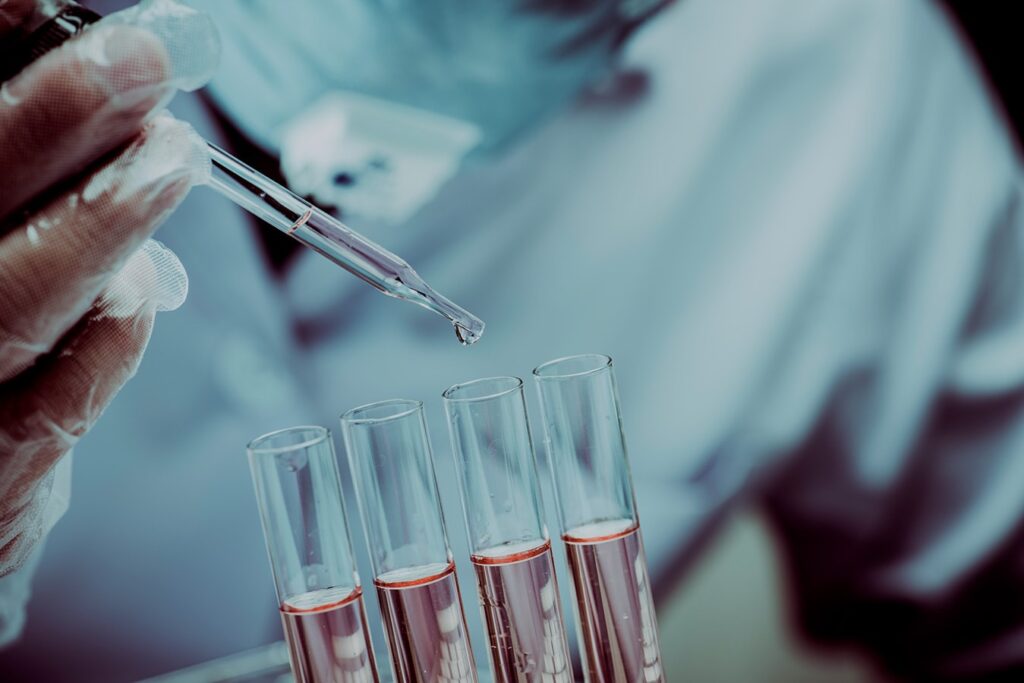Skin sensitisation Test Service for Cosmetics Manufacturers and Business Owners in Thailand and Asia

TIBD is glad to offer Skin Sensitisation Test service to our customers. We have a strong focus on deep technology of health and beauty, and has extensive expertise in this field. We believe in strong collaboration and bringing in all expertise together in order to provide excellent services to its customers. TIBD is in collaboration with top universities and research institutes in Thailand and around the globe with our partnership in Japan and Brazil.
Our head office is located in Bangkok, Thailand and we are happy to meet you in person and provide you consultation services regarding the genotoxicity test service and our other services that you are interested in. Please visit here to find out our other services.
What is a Skin Sensitisation Test?
Skin Sensitisation Test is an in vitro (non-animal) test that is used to discriminate skin sensitisers and non-sensitisers. Skin sensitisers are substances that cause allergic response when they are in contact with the skin. There is a general agreement on the key biological events that cause skin sensitisation. There are 4 key events that are well-accepted. They are (1) binding of haptens to endogenous proteins in the skin, (2) keratinocyte activation, (3) dendritic cell activation, and (4) proliferation of antigen-specific T cells. The chemicals and biological mechanisms that are related with skin sensitisation are summarized as an Adverse Outcome Pathway (AOP) (2). The test is in accordance with OECD guidelines 442E.
We provide three types of Skin Sensitisation Tests
There are three tests that are available for skin sensitisation tests in the service of TIBD. They are as followed:
Human Cell Line Activation Test ( h-CLAT)
Human Cell Line Activation Test (h-CLAT) is a cell-based test that is designed to address the third key event, which is dendritic cell activation, of the skin sensitisation AOP. The test addresses the third key event by measuring the expression levels of CD86 and CD54 cell surface markers in the human leukaemia cell line THP-1. The expression levels are then used as a support to determine skin sensitisers and non-sensitisers.
U937 Cell Line Activation Test (U-SENS™)
U937 Cell Line Activation Test (U-SENS™) is also a cell-based test for discriminating skin sensitisers and non-sensitisers. It also addresses the biological mechanisms in third key events (dendritic cells) of the skin sensitization Adverse Octcome Pathway (AOP) by inducting the CD86 protein marker in U937 cells and measuring the outcomes.
Interleukin-8 Reporter Gene Assay (IL-8 Luc Assay)
As the previous two tests, IL-8 Luc Assay also address the third key event (dendritic cell activation) of the skin sensitisation AOP by measuring the expression changes of cytokine connected with the process of DC (ie. IL-8) activation when exposed to sensitisers. The result of measurement in expression levels of luciferase activity support the discrimination of skin sensitisers and non-sensitisers.


Who should Apply for Skin Sensitisation Tests?
We serve a wide range of customers, and among our customers are companies associated with the beauty industry, such as:
- Cosmetic Ingredients Suppliers
- Cosmetic Brand Owners
- Entrepreneurs in Health and Beauty Industry
- Cosmetic Safety Testing Agencies
- Cosmetic Private Label Manufacturers
What are the benefits of conducting a Skin Sensitisation Test?
There are numerous advantages for cosmetic brand owners to have their products tested for skin sensitisation. A few from many benefits are listed below:
- The safety of consumers will be ensured.
- You will comply with product safety regulations of your respective country.
- You will prevent potential damage to your company and brand’s image.
- The report can be used as evidence of skin irritation tested.
- The test result can be used in marketing campaigns.


